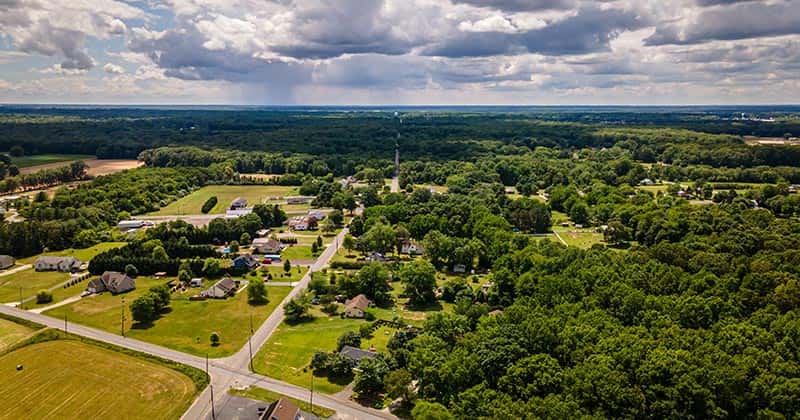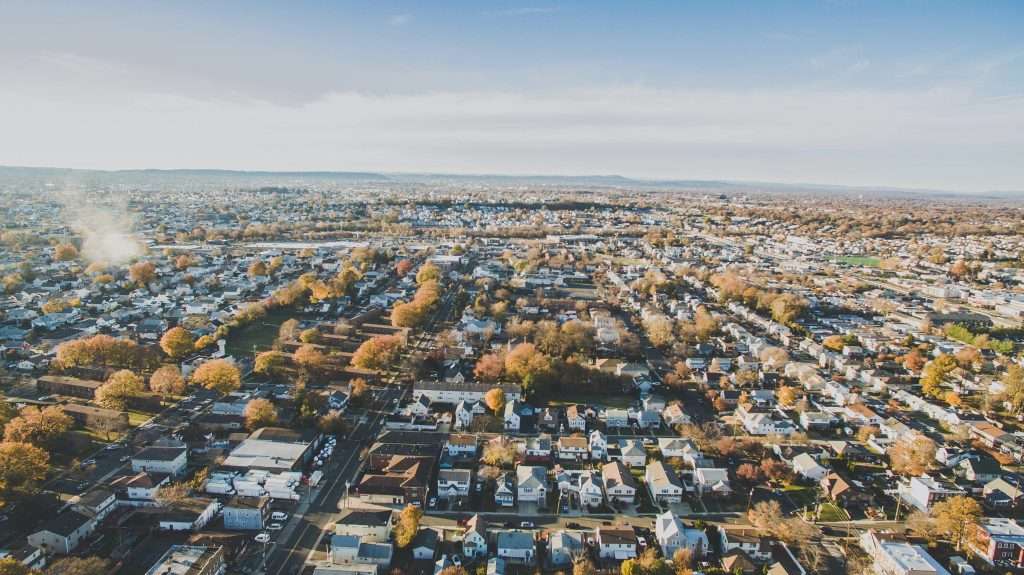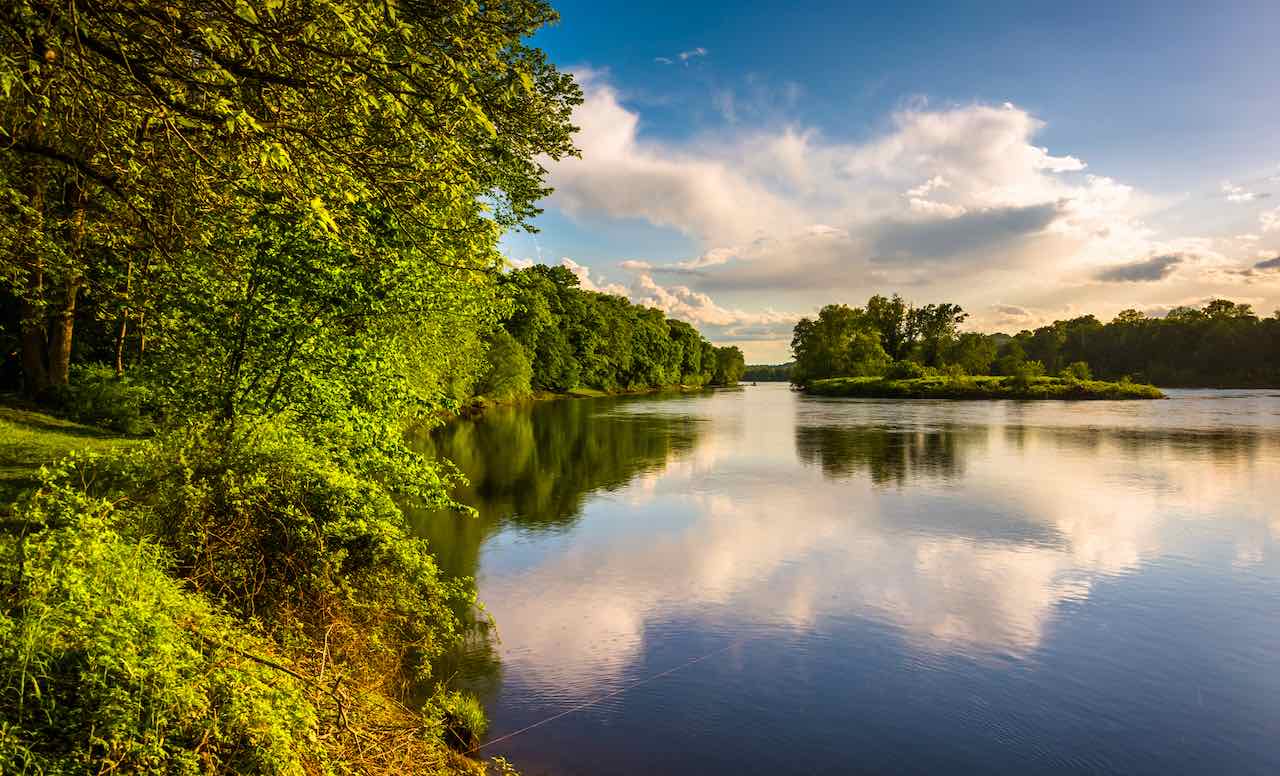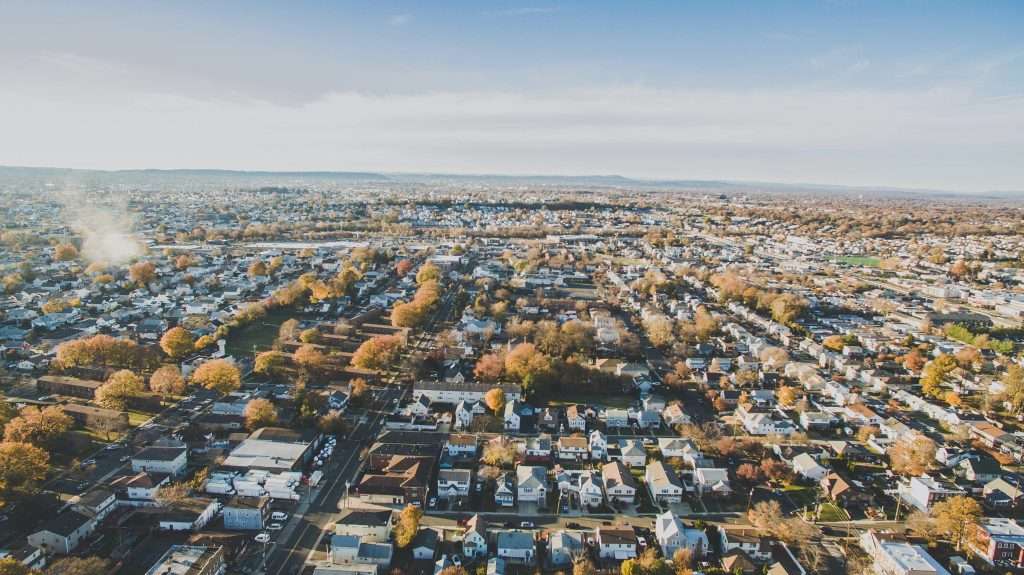Living off-grid in New Jersey comes with its fair share of challenges and benefits. While it is legal to live off-grid in the state, there are certain restrictions and regulations to consider. For instance, new homes must have electricity, flushing toilets, and heating to obtain a Certificate of Occupancy. However, living in a tiny house, whether on a foundation or on wheels, is allowed. Geography plays a role in the feasibility of off-grid living, as New Jersey’s proximity to high-tax and high-population density states can make it more challenging. Despite the beautiful scenery in rural areas, infrastructure issues become more evident closer to cities. Additionally, factors such as high taxes, a high cost of living, pollution, and a crumbling infrastructure make living off-grid in New Jersey a less desirable option for some. However, the state does offer incentives for solar power generation and has a variety of crops suitable for off-grid living. With sufficient freshwater availability and diverse wildlife, there are still opportunities for those seeking a self-sustaining lifestyle in the Garden State.

Off-Grid Living in New Jersey
If you’ve ever toyed with the idea of living off the grid, you may be surprised to learn that it is legal in New Jersey. However, there are certain restrictions and regulations in place. New homes in the state are required to have electricity, flushing toilets, and heating in order to obtain a Certificate of Occupancy. So, while you can technically live off the grid, you’ll still need to have some modern amenities in place.
New Home Requirements
In order to meet the requirements for a Certificate of Occupancy in New Jersey, new homes must have access to electricity, functioning toilets, and heating. These requirements ensure that the home meets basic standards for safety and livability. While some off-gridders may find it challenging to comply with these regulations, it’s important to keep in mind that they are in place to protect residents and ensure that their living conditions are adequate.
Tiny House Living
Living in a tiny house is another option for those interested in off-grid living in New Jersey. Whether the tiny house is on a foundation or on wheels, it is allowed in the state. This provides an alternative for those who are looking to downsize and simplify their lives. Tiny house living can also be more affordable and environmentally friendly, making it an attractive option for those seeking off-grid living in the state.
Challenges of Off-Grid Living in New Jersey
While off-grid living is legal in New Jersey, there are several challenges that come with it. One of the major challenges is the state’s proximity to high-tax and high-population density areas. This can make finding suitable land and resources more difficult. Additionally, New Jersey’s infrastructure issues are more evident closer to cities, which can pose challenges for those seeking to live off the grid. High taxes, a high cost of living, pollution, and a crumbling infrastructure also make off-grid living in the state less desirable for some.

Climate and Environmental Factors
Climate in New Jersey
New Jersey has a diverse climate, with a humid subtropical climate in the south and a humid continental climate in the north. This means that the state experiences warm, humid summers and cold winters. The climate can vary depending on the region, with coastal areas experiencing milder temperatures due to the influence of the ocean. Understanding the climate is important for off-gridders, as it can inform decisions regarding energy sources and agricultural practices.
Renewable Energy Potential
New Jersey offers incentives for renewable energy, particularly solar power generation. The state’s proximity to the ocean also makes wind power a viable option. By harnessing these renewable energy sources, off-gridders can reduce their reliance on traditional power sources and decrease their carbon footprint. Investing in renewable energy can also lead to long-term cost savings.
Agricultural Opportunities
New Jersey has a variety of agricultural opportunities, particularly in the form of fruits and vegetables. The state’s climate and fertile soil make it well-suited for growing crops. Off-gridders can take advantage of these opportunities by cultivating their own food, reducing their reliance on commercial agriculture. This not only provides a sustainable food source but also allows individuals to have more control over the quality and safety of their food.
Water Availability and Contamination
While New Jersey generally has sufficient freshwater availability, there are concerns about groundwater contamination in some areas. It’s important for off-gridders to carefully consider their water sources and take measures to ensure the quality and safety of their water. This may include installing filtration systems or relying on rainwater harvesting methods. Understanding the water situation in the area is crucial for off-grid living in order to maintain a sustainable and reliable water supply.
Wildlife in New Jersey
New Jersey is home to a diverse range of wildlife, including white-tailed deer, rabbits, raccoons, and various fish species for fishing. For nature enthusiasts, living off the grid in New Jersey provides ample opportunities to observe and interact with wildlife. Whether it’s through hunting, fishing, or simply enjoying the presence of these animals, the state offers a unique experience for those looking to live closer to nature.

Infrastructure and Accessibility
Road Access and Infrastructure
Road access and overall infrastructure in New Jersey are areas that are in need of improvement. This is particularly evident closer to cities, where traffic congestion and aging infrastructure can pose challenges for off-gridders. However, in more rural areas, road access may be less of an issue. It’s important for individuals considering off-grid living in New Jersey to carefully evaluate the accessibility of their desired location and consider any potential infrastructure limitations.
Land Prices and Property Taxes
One of the major challenges of off-grid living in New Jersey is the cost of land and property taxes. The state is known for having expensive land prices, particularly along the northeastern coast. Additionally, property taxes in New Jersey are currently at 2.44%, which is higher than the national average. These factors can significantly impact the affordability and feasibility of off-grid living in the state.
Cost of Living
New Jersey has a higher cost of living compared to the national average. This is due in part to its high taxes, expensive land prices, and other factors such as healthcare and transportation costs. While off-grid living can help reduce some expenses, it’s important to consider the overall cost of living when planning for off-grid living in New Jersey.
Employment Opportunities
New Jersey has a low unemployment rate and offers a variety of employment opportunities in industries such as pharmaceuticals, manufacturing, and agriculture. This can be an advantage for off-gridders who are seeking employment and financial stability while living off the grid. The state’s strong economic sectors can provide opportunities for individuals to support their off-grid lifestyle.

Safety and Security
Crime Rate
New Jersey has a lower crime rate compared to the national average. However, as you get closer to major cities like New York City, the crime rate tends to increase. Off-gridders should consider the safety and security of their chosen location, paying attention to crime rates and taking necessary precautions to ensure their safety.
Natural Disasters
New Jersey is not immune to natural disasters, although they are not frequent occurrences. The state can experience hurricanes, tornadoes, blizzards, and floods. It’s important for off-gridders to be prepared for these events and have plans in place to ensure their safety. This may include having emergency supplies, creating evacuation plans, and staying informed about weather alerts.
In conclusion, off-grid living in New Jersey is legal but comes with certain restrictions and challenges. However, with careful planning and considerations, it is possible to create a sustainable and fulfilling off-grid lifestyle in the state. Understanding the climate, renewable energy potential, agricultural opportunities, infrastructure, safety, and security factors is crucial for those interested in embracing off-grid living in New Jersey.





